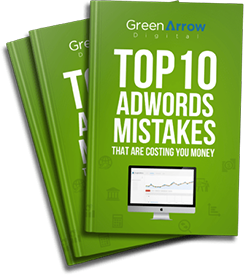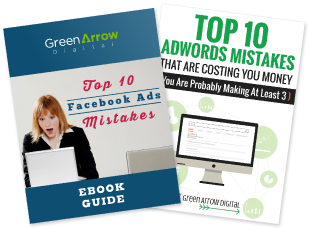One of my favourite aspects about doing what I do is having the opportunity to speak to other business owners. I find it fascinating hearing about all the different types of businesses people have.
Obviously the reason I speak to business owners is because they wish to improve their online presence and the most common question I get asked (by far!) is “Should I be advertising on Google or Facebook or both?”.
And the answer really just depends. It depends on your business and it ultimately depends where your customers hang out.
So, although there is no definitive guide to which platform to choose, here are a couple of things that I consider and discuss with clients.
Considerations in choosing to advertise on Google, Facebook or both
Where are your competitors advertising?
Although it is definitely NOT all about your competitors and you absolutely have to run your own race, but doing a bit of competitor analysis will give you a good idea of the landscape.
Due to the transparency of advertising online, few businesses will keep advertising on a specific medium if it is not profitable in the long term. So, if a competitor is continuing to advertise on one particular medium, then you can somewhat safely assume that they are making money. Or at the very least, breaking even.
Although, to confuse matters slightly, this ultimately depends on the lifetime value of the customer as competitors may be making money on the back-end. But you hopefully get my point here.
Where are your customers hanging out online?
This is best explained with an example…
Let’s say you are a mortgage broker and you are trying to promote a free workshop. It’s a great workshop with a lot of value to the right person. If this workshop is advertised to 18-25 year old’s on Facebook, chances are you are not going to get many people to sign up. Why? Because, 18-25 year olds aren’t your target market. No matter how good the workshop is, and how much value you provide, you are showing your offer to the wrong person.
So, whilst a significant aspect to succeeding in advertising online is the ‘offer’, your offer also has to be in front of your ideal client/customer in order to be successful. If it’s not in front of the right person, no matter how good the offer is, it just won’t work!
Therefore, proper analysis of your ideal customer needs to be done, a.k.a customer avatar.
So, continuing with our example for the mortgage broker, here are some of the things you need to think about:
- What age bracket are they in?
- What is their income level?
- What is their biggest struggle with finding/choosing a mortgage broker?
- Where do they live (location targeting)?
- Etc etc
Although this can be a tedious process, it is a valuable one as it will help you identify your ideal customer and find them online.
Are people searching for your product/service?
This question is really related to a decision about doing Google Search or not. This is because if no one is actually searching for your product, there is little point doing Google Search, since no one is actually searching for it! And I don’t just mean your brand, I mean any form of your product, i.e. your product is brand new into the market.
So, a couple of questions to consider are:
- Do people know about your product?
- Are they searching for it?
- Is there intent?
If not, this means you are going to need to do a brand awareness campaign which is an entire different strategy to one in which there is already awareness of a product.
In a brand awareness campaign, it may be worth considering doing a Display campaign on high traffic websites or also a explainer video on YouTube using InStream ads. These can be relatively inexpensive options to try and gather initial momentum.
However, if you answered yes to the above questions, it might be worth doing Google Search.
What is the profit margin on your product/service?
This is a really important consideration and disturbingly, one that is largely overlooked by many business owners when they are starting out.
Reality is, I’ve had many discussions with business owners and it usually goes something like this…
Business Owner (BO): “Hi, I’d like to start advertising my new product online”
Me: “Great, can you tell me a bit about it”
BO: “It is a (whatever product is). I’ve just spent $10,000 building an eCommerce site and it is ready to go. I now just need to find people to sell my product to.”
Me: “Ok great. Just to give me some idea of your numbers, how much is the product selling for, and what is the profit margin on each sale.”
(FYI, this is so I can work out CPA value to determine how much I can spend to acquire a customer.)
BO: “The product sells for $15 and the profit margin is $5”.
Me: “Hmmmm, ok. Do you get any traffic coming to your site organically?” (Thinking remarketing may be the only option due to low profit margin)
BO: “No, I have no existing customer base or any traffic coming to my site at all. It is brand new, hence me calling you”.
Me: “Hmmmm, ok. (Thinking this is not going to work!) Honestly, with the cost-per-click of approx. $2 in your industry, you are going to have to have a 50% conversion rate to just break-even (which is unlikely).
So, these are your 2 options:
1. Try and increase your profit margin by grouping products together in a bundle and selling that bundle, or
2. Don’t run paid traffic. Try blogging instead. You will pay with time, rather than money.”
So, before you build your eCommerce website and really this should be done when you are thinking of your new business, you will need to think about your profit margins and how you are going to drive traffic to your site.
So, hopefully this will give you some food for thought and you will consider all of the above when deciding on which platform is best to channel your efforts.
If you need any help in considering all this, feel free to contact us!



